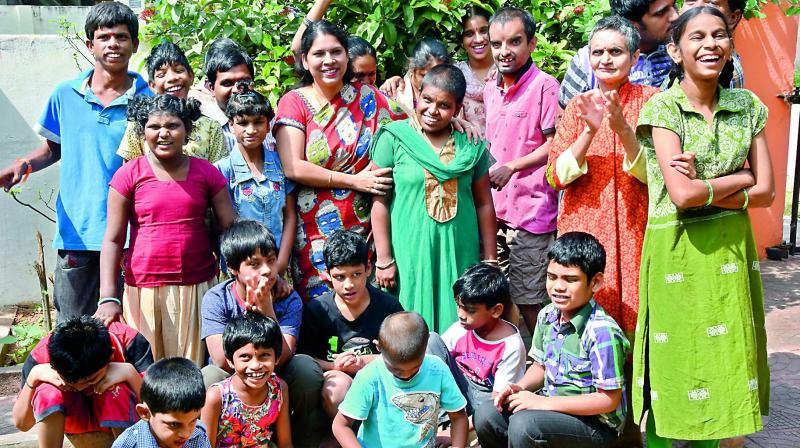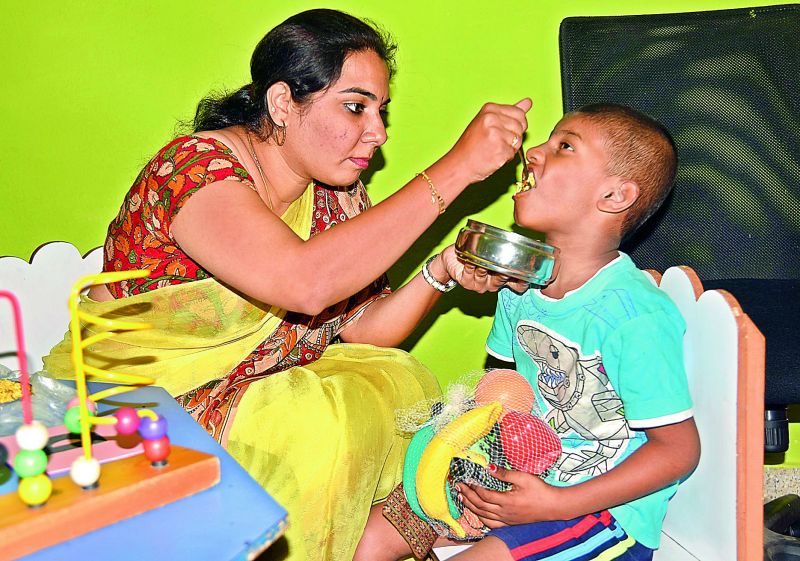Living a life
The school started with only four kids, but now it has 24 students, who regularly attend the classes.

It’s 2017 and disability continues to sustain itself strongly as a stigma in India’s so-called modern society. Intellectually disabled children or those with a general learning disability are hidden by their families and don’t even go to school, which are not always or mediocrely equipped to take care of children with special needs. The dialogue on disability leaves much to be desired and the perception of intellectually disables further pushes these children towards darkness, serving as an impediment in their growing years.
Many disabled kids are fully dependent on their parents and cannot earn anything to support themselves after their parents pass away. Although there are special schools where these kids can be taught, most of them are very expensive. And while a well-to-do family can afford these facilities for their kids, it’s the lower income group that finds it very difficult to look after kids with special needs.
Swathi Kureti, who wanted to help such kids, started a school called Special Friend, free of cost for kids who come from the slum areas. “My father had cancer and when I was in college, he was completely bedridden. I remember at times he would say that he wanted to do something for the society, volunteer, but couldn’t find the time. So, when I got an opportunity to work with the special kids via an NGO, I happily took it,” explains Swathi. “After my marriage, my husband encouraged me and I started researching about better ways in which I could help these kids. I also started pursuing a B.A. in psychology. It was during this time that I noticed that families which are below the poverty line find it very difficult to manage special kids,” she mentions.
 Special educator Shravanthika feeding a student
Special educator Shravanthika feeding a student
Explaining the plight of these kids living in the slum areas, Swathi says, “Many parents lock these kids at home while they are away working. They keep food for them and those who have a TV, switch it on, but mostly these kids are left alone and afraid in the house. I found it inhuman. Hence, I approached these parents and counselled them. Initially, it was a bit difficult, but later I managed to convince them to send their kids to my school.”
Notably, what started with only four kids, has now become a school with 24 students, who regularly attend the classes. The kids are taught sustainable skills like making paper bags, diyas, Ganesh idols and other such things. There is no set syllabus and the curriculum is prepared for each student differently, depending on the student’s disabilities.
“Many fail to understand that disability is not inability. These kids too can be trained to do certain things. At our school, we teach them things that will help them live on their own. We provide behaviour therapy and occupational therapy, which are some self-help skills. We even have a hostel now for kids who cannot travel on a daily basis. We have a warden, a cook and trained caretakers at the hostel for the students,” explains Swathi.
What is even more commendable is that these kids are also given sex education at the school. “Intellectually disabled kids are more vulnerable to child sex abuse than normal kids.” Although the finances of the school are mostly tight, Swathi is doing her best to find as many donors as possible. “Whatever items the kids make, we sell those and use it for the school. Recently, we received an order of 1,000 paper bags from a star hotel in the city too.”

